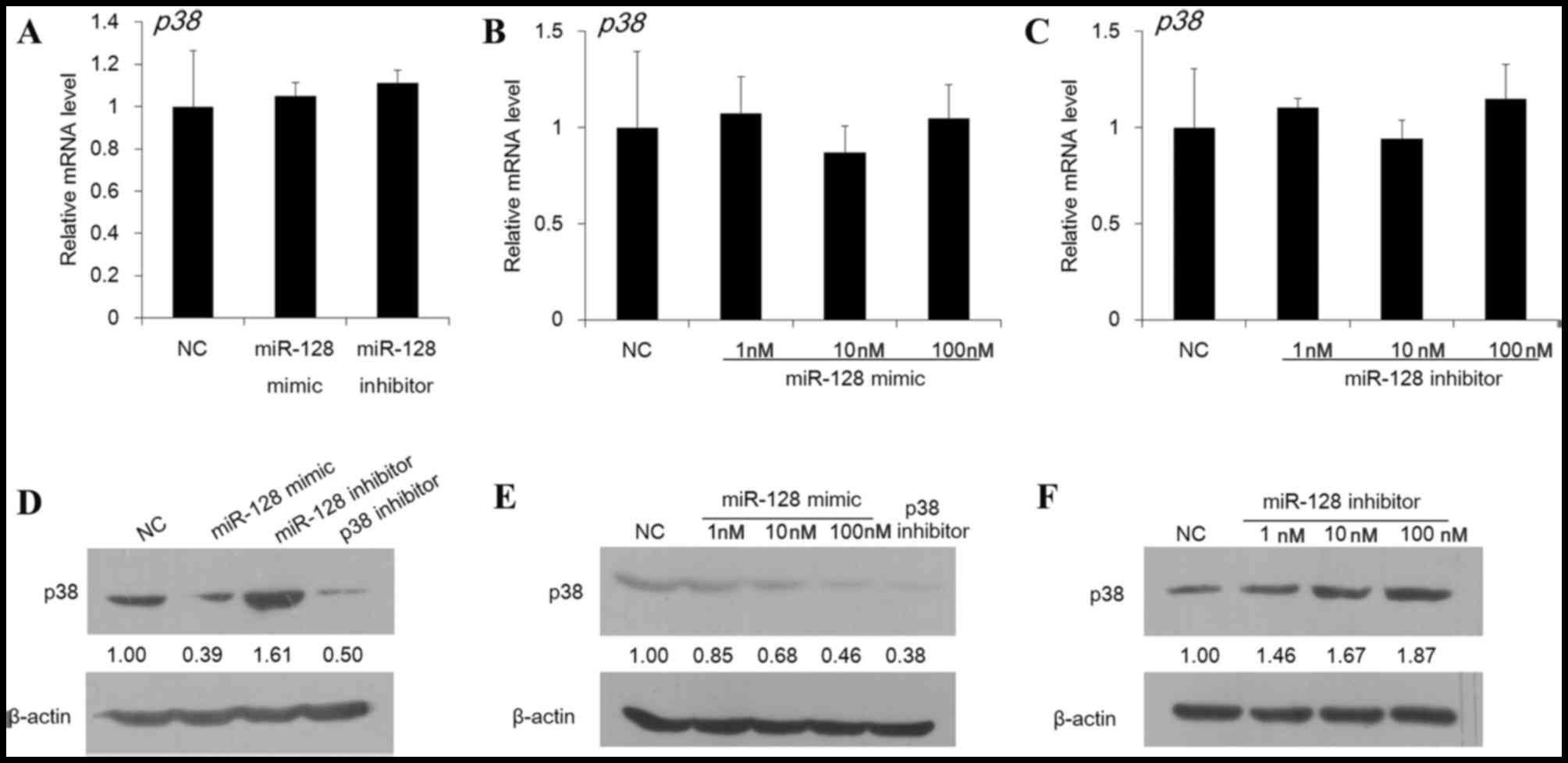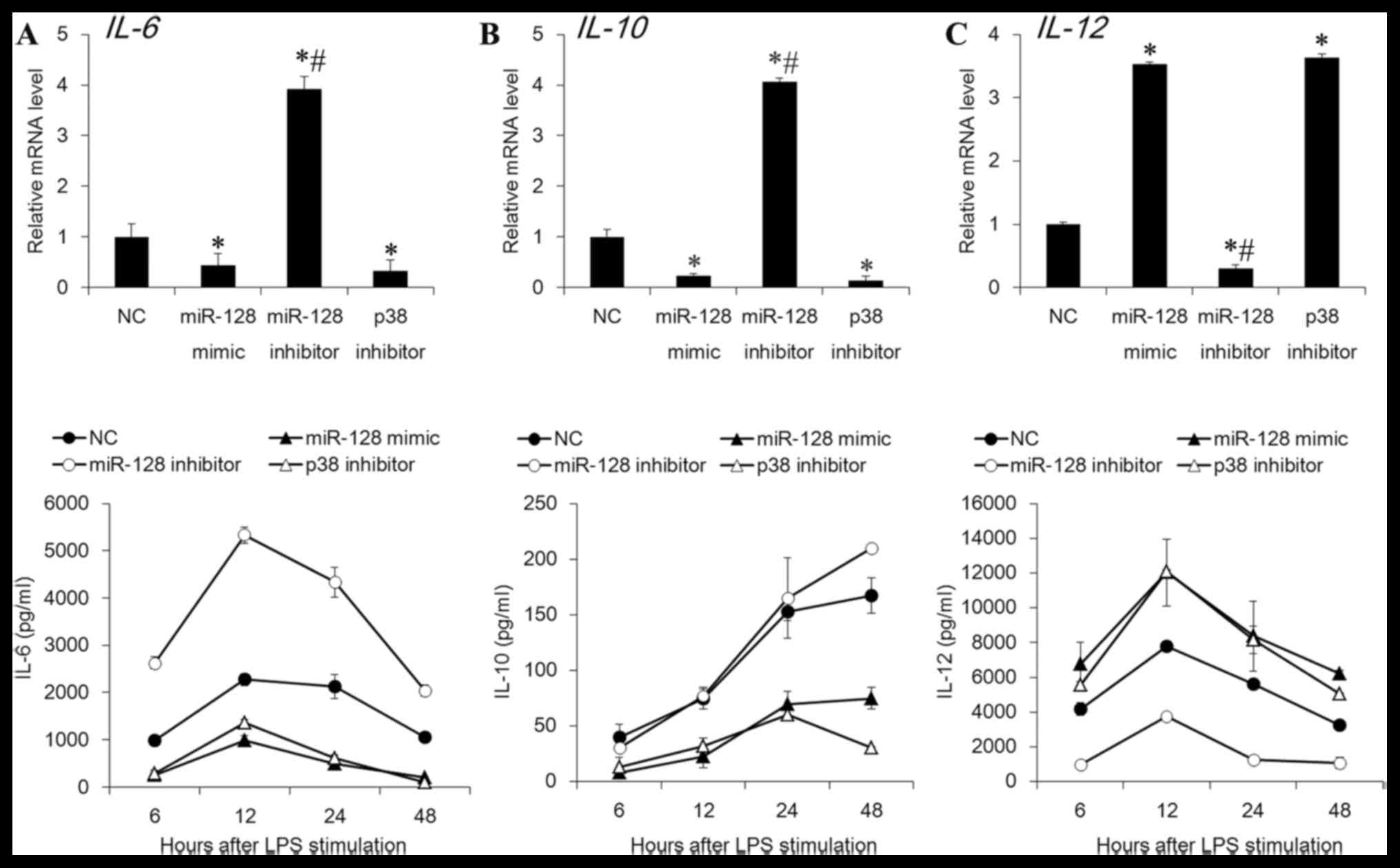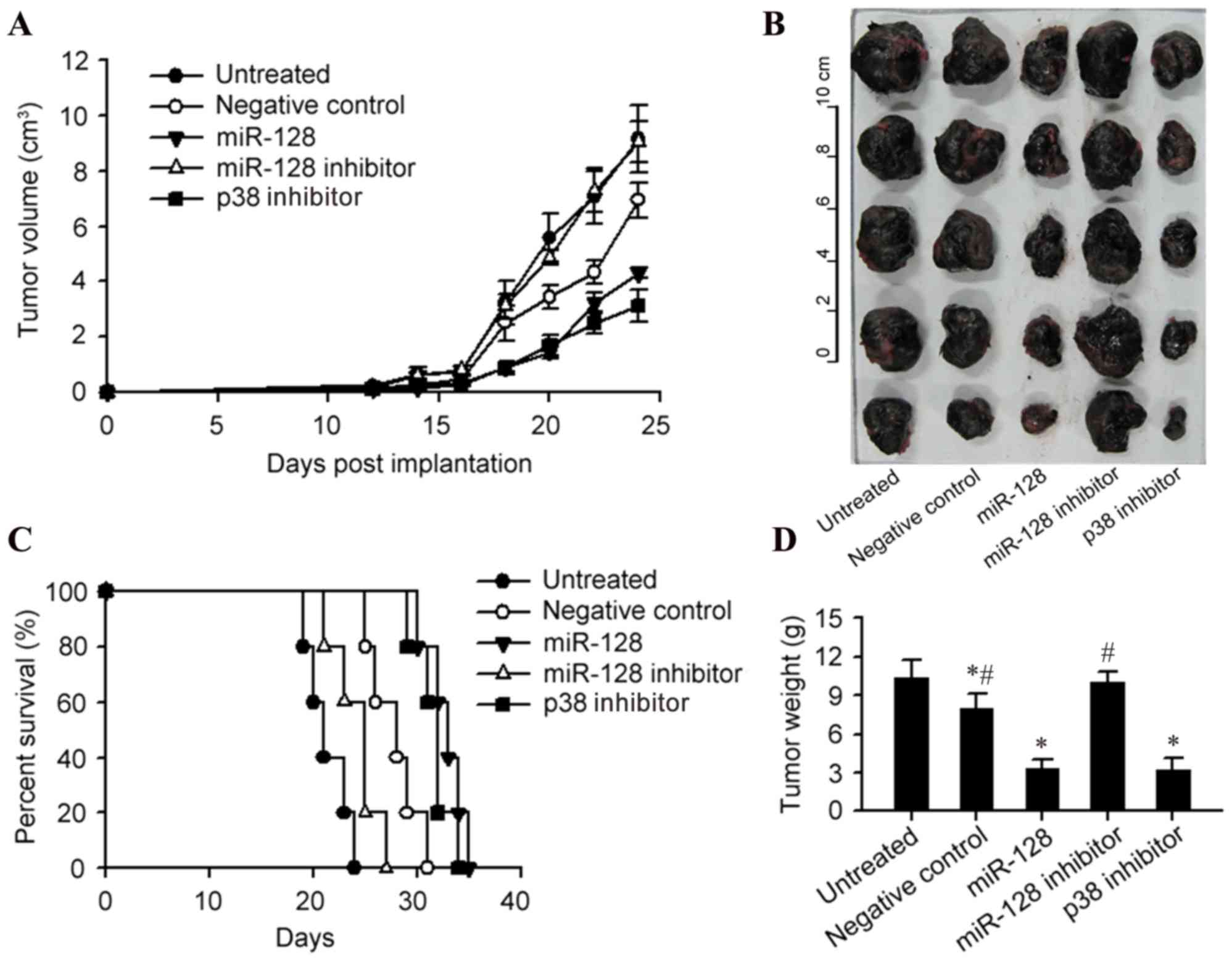|
1
|
Ferlay J, Soerjomataram I, Dikshit R, Eser
S, Mathers C, Rebelo M, Parkin DM, Forman D and Bray F: Cancer
incidence and mortality worldwide: Sources, methods and major
patterns in GLOBOCAN 2012. Int J Cancer. 136:E359–E386. 2015.
View Article : Google Scholar : PubMed/NCBI
|
|
2
|
Guo J, Qin S, Liang J, Lin T, Si L, Chen
X, Chi Z, Cui C, Du N, Fan Y, et al: Chinese guidelines on the
diagnosis and treatment of melanoma (2015 Edition). Ann Transl Med.
3:3222015.PubMed/NCBI
|
|
3
|
Henderson MA, Burmeister B, Ainslie J,
Fisher R, Di Iulio J, Smithers BM, Hong A, Shannon KF, Scolyer RA,
Carruthers S, et al: Adjuvant radiotherapy after lymphadenectomy in
melanoma patients: Final results of an intergroup randomized trial
(ANZMTG 0.1. 02/TROG 02.01). J Clin Oncol. 31 Suppl:S90012013.
|
|
4
|
Walker L, Schalch H, King DM, Dietrich L,
Eastman M, Kwak M, Kim K and Albertini MR: Phase II trial of weekly
paclitaxel in patients with advanced melanoma. Melanoma Res.
15:453–459. 2005. View Article : Google Scholar : PubMed/NCBI
|
|
5
|
Avril MF, Aamdal S, Grob JJ, Hauschild A,
Mohr P, Bonerandi JJ, Weichenthal M, Neuber K, Bieber T, Gilde K,
et al: Fotemustine compared with dacarbazine in patients with
disseminated malignant melanoma: A phase III study. J Clin Oncol.
22:1118–1125. 2004. View Article : Google Scholar : PubMed/NCBI
|
|
6
|
Steinman RM: Decisions about dendritic
cells: Past, present, and future. Annu Rev Immunol. 30:1–22. 2012.
View Article : Google Scholar : PubMed/NCBI
|
|
7
|
Banchereau J and Steinman RM: Dendritic
cells and the control of immunity. Nature. 392:245–252. 1998.
View Article : Google Scholar : PubMed/NCBI
|
|
8
|
Palucka K and Banchereau J: Cancer
immunotherapy via dendritic cells. Nat Rev Cancer. 12:265–277.
2012. View
Article : Google Scholar : PubMed/NCBI
|
|
9
|
Mackensen A, Herbst B, Chen JL, Köhler G,
Noppen C, Herr W, Spagnoli GC, Cerundolo V and Lindemann A: Phase I
study in melanoma patients of a vaccine with peptide-pulsed
dendritic cells generated in vitro from CD34(+) hematopoietic
progenitor cells. Int J Cancer. 86:385–392. 2000. View Article : Google Scholar : PubMed/NCBI
|
|
10
|
Nestle FO, Alijagic S, Gilliet M, Sun Y,
Grabbe S, Dummer R, Burg G and Schadendorf D: Vaccination of
melanoma patients with peptide- or tumor lysate-pulsed dendritic
cells. Nat Med. 4:328–332. 1998. View Article : Google Scholar : PubMed/NCBI
|
|
11
|
Oshita C, Takikawa M, Kume A, Miyata H,
Ashizawa T, Iizuka A, Kiyohara Y, Yoshikawa S, Tanosaki R, Yamazaki
N, et al: Dendritic cell-based vaccination in metastatic melanoma
patients: Phase II clinical trial. Oncol Rep. 28:1131–1138.
2012.PubMed/NCBI
|
|
12
|
Engell-Noerregaard L, Hansen TH, Andersen
MH, Straten P Thor and Svane IM: Review of clinical studies on
dendritic cell-based vaccination of patients with malignant
melanoma: Assessment of correlation between clinical response and
vaccine parameters. Cancer Immunol Immunother. 58:1–14. 2009.
View Article : Google Scholar : PubMed/NCBI
|
|
13
|
Bol KF, Aarntzen EH, Hout FE, Schreibelt
G, Creemers JH, Lesterhuis WJ, Gerritsen WR, Grunhagen DJ, Verhoef
C, Punt CJ, et al: Favorable overall survival in stage III melanoma
patients after adjuvant dendritic cell vaccination. Oncoimmunology.
5:e10576732016. View Article : Google Scholar : PubMed/NCBI
|
|
14
|
Gabrilovich D: Mechanisms and functional
significance of tumour-induced dendritic-cell defects. Nat Rev
Immunol. 4:941–952. 2004. View
Article : Google Scholar : PubMed/NCBI
|
|
15
|
Xie J, Qian J, Yang J, Wang S, Freeman ME
III and Yi Q: Critical roles of Raf/MEK/ERK and PI3K/AKT signaling
and inactivation of p38 MAP kinase in the differentiation and
survival of monocyte-derived immature dendritic cells. Exp Hematol.
33:564–572. 2005. View Article : Google Scholar : PubMed/NCBI
|
|
16
|
Wang S, Hong S, Yang J, Qian J, Zhang X,
Shpall E, Kwak LW and Yi Q: Optimizing immunotherapy in multiple
myeloma: Restoring the function of patients' monocyte-derived
dendritic cells by inhibiting p38 or activating MEK/ERK MAPK and
neutralizing interleukin-6 in progenitor cells. Blood.
108:4071–4077. 2006. View Article : Google Scholar : PubMed/NCBI
|
|
17
|
Lawson SK, Dobrikova EY, Shveygert M and
Gromeier M: p38α mitogen-activated protein kinase depletion and
repression of signal transduction to translation machinery by
miR-124 and −128 in neurons. Mol Cell Biol. 33:127–135. 2013.
View Article : Google Scholar : PubMed/NCBI
|
|
18
|
Shi ZM, Wang J, Yan Z, You YP, Li CY, Qian
X, Yin Y, Zhao P, Wang YY, Wang XF, et al: MiR-128 inhibits tumor
growth and angiogenesis by targeting p70S6K1. PLoS One.
7:e327092012. View Article : Google Scholar : PubMed/NCBI
|
|
19
|
Hu J, Cheng Y, Li Y, Jin Z, Pan Y, Liu G,
Fu S, Zhang Y, Feng K and Feng Y: microRNA-128 plays a critical
role in human non-small cell lung cancer tumourigenesis,
angiogenesis and lymphangiogenesis by directly targeting vascular
endothelial growth factor-C. Eur J Cancer. 50:2336–2350. 2014.
View Article : Google Scholar : PubMed/NCBI
|
|
20
|
Li M, Fu W, Wo L, Shu X, Liu F and Li C:
miR-128 and its target genes in tumorigenesis and metastasis. Exp
Cell Res. 319:3059–3064. 2013. View Article : Google Scholar : PubMed/NCBI
|
|
21
|
Zhang Z, Liu Q, Che Y, Yuan X, Dai L, Zeng
B, Jiao G, Zhang Y, Wu X, Yu Y, et al: Antigen presentation by
dendritic cells in tumors is disrupted by altered metabolism that
involves pyruvate kinase M2 and its interaction with SOCS3. Cancer
Res. 70:89–98. 2010. View Article : Google Scholar : PubMed/NCBI
|
|
22
|
Min S, Liang X, Zhang M, Zhang Y, Mei S,
Liu J, Su X, Cao S, Zhong X, Li Y, et al: Multiple tumor-associated
microRNAs modulate the survival and longevity of dendritic cells by
targeting YWHAZ and Bcl2 signaling pathways. J Immunol.
190:2437–2446. 2013. View Article : Google Scholar : PubMed/NCBI
|
|
23
|
Livak KJ and Schmittgen TD: Analysis of
relative gene expression data using real-time quantitative PCR and
the 2(−Delta Delta C(T)) method. Methods. 25:402–408. 2001.
View Article : Google Scholar : PubMed/NCBI
|
|
24
|
Anderson P: Post-transcriptional control
of cytokine production. Nat Immunol. 9:353–359. 2008. View Article : Google Scholar : PubMed/NCBI
|
|
25
|
Cargnello M and Roux PP: Activation and
function of the MAPKs and their substrates, the MAPK-activated
protein kinases. Microbiol Mol Biol Rev. 75:50–83. 2011. View Article : Google Scholar : PubMed/NCBI
|
|
26
|
Godlewski J, Nowicki MO, Bronisz A,
Williams S, Otsuki A, Nuovo G, Raychaudhury A, Newton HB, Chiocca
EA and Lawler S: Targeting of the Bmi-1 oncogene/stem cell renewal
factor by microRNA-128 inhibits glioma proliferation and
self-renewal. Cancer Res. 68:9125–9130. 2008. View Article : Google Scholar : PubMed/NCBI
|
|
27
|
Guerau-de-Arellano M, Smith KM, Godlewski
J, Liu Y, Winger R, Lawler SE, Whitacre CC, Racke MK and
Lovett-Racke AE: Micro-RNA dysregulation in multiple sclerosis
favours pro-inflammatory T-cell-mediated autoimmunity. Brain.
134:3578–3589. 2011. View Article : Google Scholar : PubMed/NCBI
|
|
28
|
Chomarat P, Banchereau J, Davoust J and
Palucka AK: IL-6 switches the differentiation of monocytes from
dendritic cells to macrophages. Nat Immunol. 1:510–514. 2000.
View Article : Google Scholar : PubMed/NCBI
|
|
29
|
Park SJ, Nakagawa T, Kitamura H, Atsumi T,
Kamon H, Sawa S, Kamimura D, Ueda N, Iwakura Y, Ishihara K, et al:
IL-6 regulates in vivo dendritic cell differentiation through STAT3
activation. J Immunol. 173:3844–3854. 2004. View Article : Google Scholar : PubMed/NCBI
|
|
30
|
McBride JM, Jung T, de Vries JE and Aversa
G: IL-10 alters DC function via modulation of cell surface
molecules resulting in impaired T-cell responses. Cell Immunol.
215:162–172. 2002. View Article : Google Scholar : PubMed/NCBI
|
|
31
|
Fortsch D, Röllinghoff M and Stenger S:
IL-10 converts human dendritic cells into macrophage-like cells
with increased antibacterial activity against virulent
Mycobacterium tuberculosis. J Immunol. 165:978–987. 2000.
View Article : Google Scholar : PubMed/NCBI
|
|
32
|
Corinti S, Albanesi C, la Sala A, Pastore
S and Girolomoni G: Regulatory activity of autocrine IL-10 on
dendritic cell functions. J Immunol. 166:4312–4318. 2001.
View Article : Google Scholar : PubMed/NCBI
|
|
33
|
Trombetta ES and Mellman I: Cell biology
of antigen processing in vitro and in vivo. Annu Rev Immunol.
23:975–1028. 2005. View Article : Google Scholar : PubMed/NCBI
|
|
34
|
Clatworthy MR, Aronin CE, Mathews RJ,
Morgan NY, Smith KG and Germain RN: Immune complexes stimulate
CCR7-dependent dendritic cell migration to lymph nodes. Nat Med.
20:1458–1463. 2014. View
Article : Google Scholar : PubMed/NCBI
|
|
35
|
Sharma S, Stolina M, Lin Y, Gardner B,
Miller PW, Kronenberg M and Dubinett SM: T cell-derived IL-10
promotes lung cancer growth by suppressing both T cell and APC
function. J Immunol. 163:5020–5028. 1999.PubMed/NCBI
|
|
36
|
Jarnicki AG, Conroy H, Brereton C,
Donnelly G, Toomey D, Walsh K, Sweeney C, Leavy O, Fletcher J,
Lavelle EC, et al: Attenuating regulatory T cell induction by TLR
agonists through inhibition of p38 MAPK signaling in dendritic
cells enhances their efficacy as vaccine adjuvants and cancer
immunotherapeutics. J Immunol. 180:3797–3806. 2008. View Article : Google Scholar : PubMed/NCBI
|


















